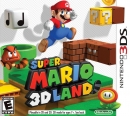http://www.alexevansgames.blogspot.com
Has the emergence of the iPhone, with its quick downloads, cheap games and convenience, not to mention its mainstream appeal, killed the appeal of traditional handhelds?
I think its very possible. Sony's PSP Go was a laughably poor attempt at countering the iPhone - it had PSP Minis, but very few of them, and you still need to be connected to a wireless access point, rather than 3G to download them, so they arent very convenient, either. In fact, I think Sony and Nintendo are in real danger of being overtaken in the gaming-on-the-go market if they don't realistically counter the iPhone soon.
Thoughts?
(Full article at the above link)
Gaming on the go is big business. Nintendo have sold over 120 million DS consoles, and Sony have shifted a not-too-shabby 60 million PSPs. This is the largest number of handhelds that have ever been sold in a single five-year period. Clearly, setting lap times on the loo is here to stay.
But whether it’s going to remain in its current form is another matter entirely. Over the coming years, the handheld market is going to see a huge period of change, the likes of which could see even the mighty Nintendo ousted from their multi-billion dollar market-leading position.
 The cause of this looming upset is undoubtedly the Nokia N-gage.
The cause of this looming upset is undoubtedly the Nokia N-gage.
No, really. This may sound ludicrous, but the success of Apple’s iPhone, with its App store full to bursting with cheap, accessible games, can be traced back to Nokia’s failed handheld-meets-mobile.
Nokia’s doomed device was the first real stab at a games/phone combo, and although it failed spectacularly, it set a trend that was to have far-reaching consequences for the handheld games industry.
The beauty of a gadget that can just as easily call your gran as it can zap alien scum is that it can be bought very easily. Want a DS? That’ll run you £100. A PSP? £130. Don’t even mention the PSP Go’s absurd price tag. But an Apple iPhone, or a similarly powerful smart phone? Certainly. Just sign on the dotted line, sir.
Monthly phone contracts may be expensive in the long run, but they allow adults with a regular income (so, anyone who isn’t a starving freelancer like myself) to walk into a phone shop tomorrow and pick up a snazzy new gadget. A gadget, like an iPhone or any one of a number of similar superphones, that will download and play cheap, accessible games on the go. No lining up in funny-smelling game shops, no wrestling with an overweight brat for the last copy of Halo Theft Turismo 7. Just hit ‘download’ and play until the train arrives.
 Now, Sony have tried something similar. The PSP Go is a download-only console, which should pack the same kind of advantages as Apple’s efforts. But it became a flawed device, destined for failure the moment Sony decided not to also make it a phone as well – even a bad one. PSP Go can’t be bought for £0 up front on a contract (a staggering £250 up-front, actually), it can’t go online anywhere – so no downloading Tetris while you wait in traffic – and the thing simply won’t go everywhere you do, because it isn’t a phone – it isn’t an essential.
Now, Sony have tried something similar. The PSP Go is a download-only console, which should pack the same kind of advantages as Apple’s efforts. But it became a flawed device, destined for failure the moment Sony decided not to also make it a phone as well – even a bad one. PSP Go can’t be bought for £0 up front on a contract (a staggering £250 up-front, actually), it can’t go online anywhere – so no downloading Tetris while you wait in traffic – and the thing simply won’t go everywhere you do, because it isn’t a phone – it isn’t an essential.
The iPhone’s App store may be teeming with rubbishy tat titles, it may be devoid of most traditional big-hitters – think Call of Duty, Halo, GTA – but it’s cheap, and it’s easy. Whilst most seasoned gamers may well stick to their pricey, inconvenient consoles with their tiny selection of downloadable titles (that goes for DSi and PSP Go), the general public – the mass market – will buy titles on their phones and play cheap and cheerfully on the go. This emerging demographic will soon be much bigger than the traditional handheld market – which isn’t exactly something to be sniffed at as it is. Backing this up, mobile phone development last year shot up – to 25% of overall games development, from 12% the previous year. Worryingly for Nintendo and Sony, that’s more than twice the support that DS or PSP receive (Source: Game Developer Research: Game Development Survery 2009-2010)
Time, then, for the traditional handheld companies to adapt, or be left behind – at home, or worse, on store shelves. Portable gaming needs to be mobile, too.




















